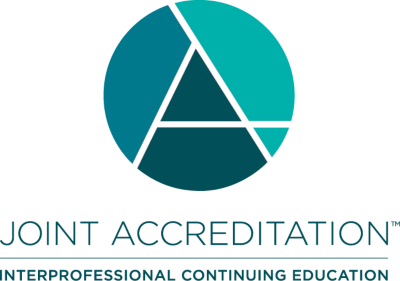Taking Simulations Outside of the Simulation Suite: How to Adapt Simulations for Primary Care Environments
Monday, August 19, 2019, 3:30 pm - 4:30 pm
Greenway D Room
Theme: Optimizing the Interprofessional Clinical Learning Environment
Workshop Description:
Clinical simulation has been shown to teach teamwork and improve clinical skills, support healthcare professionals in working at the top of their licenses, and optimize team-based care. The primary care (PC) outpatient setting is ideal for interprofessional, simulation-based learning as it offers a wide variety of professions who are available at the same time. Unfortunately, most simulation scenarios have been designed for educational or hospital teaching settings and are often acute care and task focused. Most PC settings, including ambulatory care clinics not connected with academic health centers, may not have the space, knowledge or resources required to run most traditional simulation scenarios. This workshop is suitable for both those working in a PC setting and/or are involved in PC health professions education.
The System-transforming, Patient-centered Longitudinal Interprofessional Community-based Education (SPLICE) initiative has developed a collaborative practice curriculum for family nurse practitioner (FNP), Physician Assistant (PA), and medical students, PC medical residents, pharmacy residents, and practicing primary care staff including medical assistants, administrative staff and licensed clinical staff. We use simulation experiences, in-person workshops and short web-based education modules to provide interprofessional learning experiences. We purposely focus on ensuring participants work at the top of their license. Through this work we recognized the importance of developing and adapting versatile, low-cost simulations that could be used in multiple settings and in particular, the need for more PC- based simulation scenarios that could be used in situ or outside of an academic simulation center.
This workshop will use a short, 20 minute PowerPoint presentation and discussion to review the basic makeup of a simulation scenario and the factors to consider when adapting a simulation to a PC environment including the professions involved, time available and resources, and factors such as pre-briefing and facilitator guides that we have found to be useful when conducting simulation experiences.
The remaining 40 minutes of the workshop will be focused on adapting an existing interprofessional simulation case designed for a simulation center, to a tabletop format well suited for the primary care setting. The case is a patient who has begun to misuse opioids originally prescribed for a torn ACL. It has become clear that he is inappropriately using and a team of interprofessional staff including an RN, medical assistant, front office staff, primary care provider and integrated behavioral health staff member discuss the case and come up with a plan of care. This simulation can be modified to include a standardized patient or as a standalone table top exercise. We will offer additional materials needed to run the exercise, including the simulated patient’s chart and accompanying documentation, to participants at no cost.
Learner Outcomes:
Learners will leave the workshop with
1) a basic understanding of the factors to consider when adapting simulations
2) strategies to modify simulations designed for education environments in a simulation center and adapt them to the clinical environment with multiple learner types,
3) the basic outline of a case they can complete for their interprofessional team and environment.
Funding Attribution: SPLICE is funded through a HRSA Primary Care Training Enhancement Grant #T0BHP30023
Interprofessional Continuing Education
This activity has been planned and implemented by the National Center for Interprofessional Practice and Education. In support of improving patient care, The National Center for Interprofessional Practice and Education is jointly accredited by the Accreditation Council for Continuing Medical Education (ACCME), the Accreditation Council for Pharmacy Education (ACPE), the American Nurses Credentialing Center (ANCC) and the Association of Social Work Boards (ASWB) to provide continuing education for the healthcare team. The intent is to provide accreditation and continuing education credit for this workshop. For questions regarding continuing education, please email ipceapps@umn.edu.



